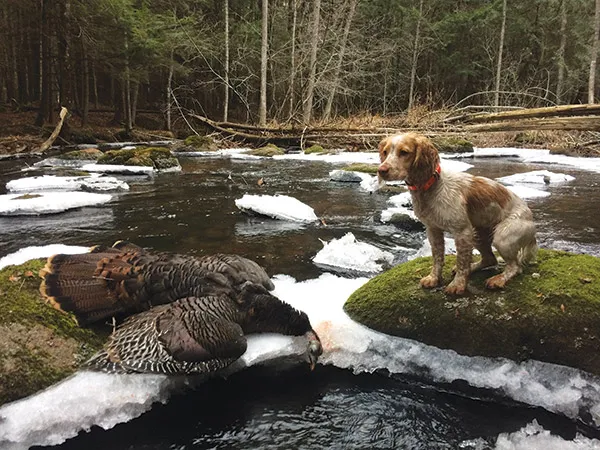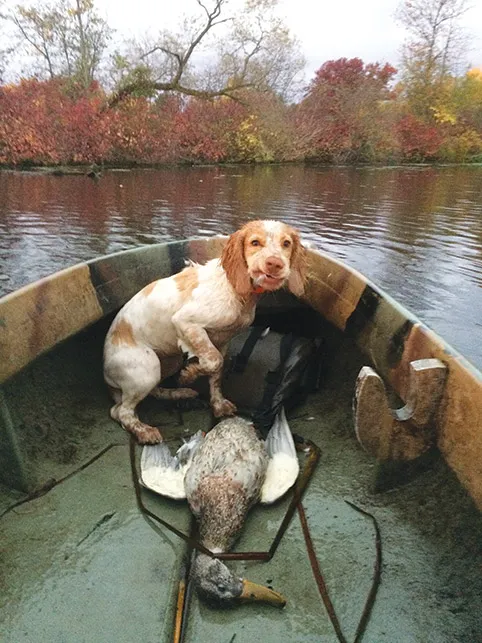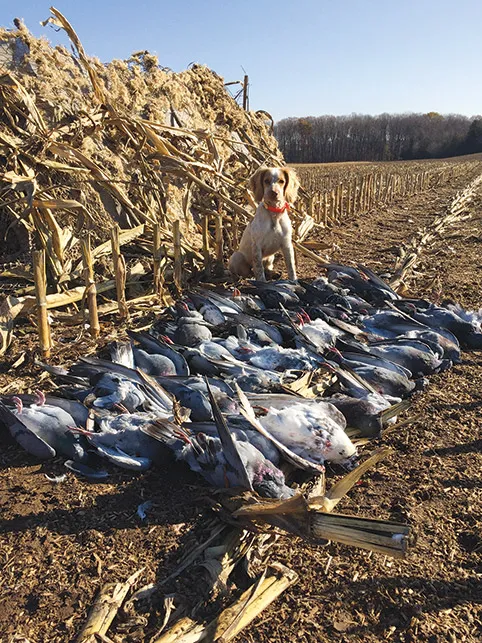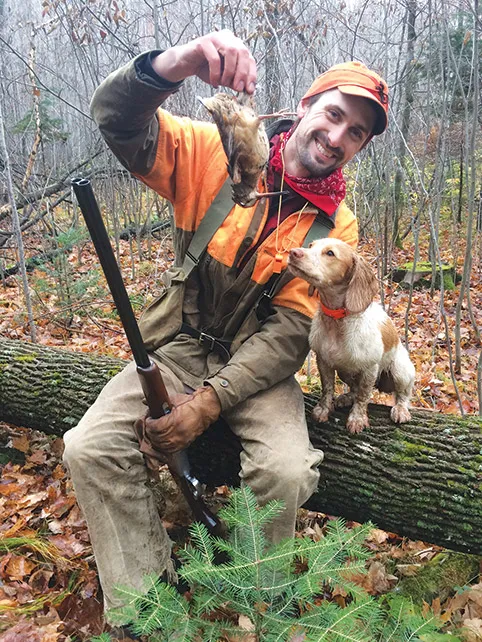When considering a canine partner for the hunt, the Field Bred English Cocker Spaniel might not be the first breed that springs to mind for many. Often mistaken for their show-bred counterparts, these dogs possess a distinct set of traits honed for the rigors of the field. Their journey from a popular family pet to a capable hunting dog is a testament to selective breeding and the enduring desire for a versatile companion. This article delves into what makes the Field Bred English Cocker Spaniel a remarkable choice for hunters and outdoors enthusiasts.
For those unfamiliar, the initial encounter with a Field Bred English Cocker Spaniel in its working element can be surprising. Unlike the pampered appearance of show dogs, a working cocker might sport a face a bit roughed up from enthusiastic work through dense cover. This is a sign of dedication, not distress. These dogs are built to navigate challenging terrains, proving their mettle in pursuit of game. Their small to medium size, typically between 19 to 40 pounds, belies a surprising toughness and tenacity that allows them to tackle tasks that might challenge larger breeds.
The versatility of the Field Bred English Cocker Spaniel is one of its most significant selling points. While primarily recognized as an upland bird dog, adept at flushing game birds like woodcock and grouse, their capabilities extend far beyond. They demonstrate a strong aptitude for retrieving waterfowl, undeterred by cool waters, and can even be trained to flush rabbits. This adaptability makes them an ideal choice for hunters who pursue a variety of game throughout different seasons. Their inherent desire to please their owners fuels their dedication, making them eager participants in any hunting endeavor.
The history of the Field Bred English Cocker Spaniel reveals a deliberate effort to create a compact, agile dog capable of working through thick brush and undergrowth. The “cocker” in their name is derived from their historical prowess in hunting woodcock. Their lineage can be traced back to Springer Spaniels, from which founders selectively bred for a smaller size and increased maneuverability. This focus on field performance has resulted in a dog that is not only efficient in locating and flushing game but also possesses a soft mouth, crucial for delivering retrieved birds without damage.
For families, the Field Bred English Cocker Spaniel offers a unique blend of working ability and affectionate companionship. Many owners find that these dogs integrate seamlessly into family life, proving to be excellent playmates for children. Their manageable size means they don’t dominate living spaces, and their intelligence and trainability contribute to their suitability as household pets. This dual nature – a spirited hunter in the field and a devoted family member at home – is a hallmark of the breed.
The training and development of a Field Bred English Cocker Spaniel require an understanding of their unique temperament. They respond best to positive reinforcement and gentle guidance. Harsh training methods can be counterproductive, as these dogs are known to be sensitive. Building a strong bond through consistent training and clear communication is key. Early socialization and introduction to various hunting scenarios, such as working out of a blind or retrieving from water, can further enhance their capabilities and confidence.
When it comes to specific hunting applications, the Field Bred English Cocker Spaniel excels in various roles. Their ability to flush upland birds is exceptional, navigating dense cover with an uncanny knack for locating hidden game. In waterfowl hunting, they can assist in flushing ducks and are capable retrievers, though their size might necessitate a neoprene vest for extended periods in very cold water. Their aptitude for rabbit hunting, while different from scent-trailing hounds, involves a more dynamic “jump shooting” style. A well-trained cocker will “hup” (sit) when a rabbit breaks cover, allowing the hunter an opportunity for a shot.
 A Field Bred English Cocker Spaniel during a hunt, demonstrating its focus on game.
A Field Bred English Cocker Spaniel during a hunt, demonstrating its focus on game.
The inherent drive of a Field Bred English Cocker Spaniel is remarkable. Even at a young age, pups can demonstrate a strong retrieving instinct and a desire to work. This innate ability, combined with proper training, can yield a highly effective hunting partner. Many owners recount stories of their young cockers performing tasks that seem far beyond their age, showcasing a maturity and focus that are characteristic of well-bred individuals. This eagerness to perform can sometimes lead to overexertion, a reminder for handlers to manage their dog’s energy levels and prevent burnout.
While the breed is incredibly capable, there are a few considerations for potential owners. Their coats, while beautiful, can be prone to picking up burrs and debris, requiring regular grooming and attention. Keeping their coats trimmed short can mitigate this issue. Furthermore, while they are adept in the water, their smaller size means they may not have the same cold-water tolerance as larger breeds, making specialized gear like a neoprene vest a practical consideration for winter hunting.
The Field Bred English Cocker Spaniel’s size also presents distinct advantages, particularly in smaller hunting vessels like duck skiffs. While a larger breed might take up considerable space, a cocker can be accommodated with ease, allowing for more gear and a less crowded experience. This makes them ideal for hunters who prefer a more minimalist approach to their hunting expeditions.
 An English Cocker Spaniel in a hunting boat, showcasing its compact size.
An English Cocker Spaniel in a hunting boat, showcasing its compact size.
One of the most endearing qualities of the Field Bred English Cocker Spaniel is their unwavering loyalty and their role as a cherished family member. They develop strong bonds with their owners and often become integral to the family unit. Their playful nature and affectionate demeanor make them a joy to have around the home, even when not actively engaged in hunting activities. This deep connection is often what leads owners to describe them as “unicorn dogs” – a breed that seemingly possesses all the desirable traits of a perfect canine companion.
The journey of discovery for many hunters often involves evolving preferences. For some, the initial loyalty to a particular breed, like the Labrador Retriever, can be challenged by the unique qualities of others. The Field Bred English Cocker Spaniel, with its blend of hunting prowess, trainability, and family-friendly nature, has carved out a significant niche and is increasingly recognized for its ability to truly “do it all.” Their rising popularity is a clear indication of their exceptional capabilities and their enduring appeal to those seeking a versatile and devoted hunting partner.
The trust placed in a Field Bred English Cocker Spaniel during a hunt is paramount. Even when a dog’s initial search area doesn’t align with the handler’s expectation, patience and faith in their instincts often lead to success. The scenario of a dog finding a downed bird in an unexpected location, as described by many owners, underscores the importance of understanding and trusting your canine partner’s unique approach to the task. This mutual understanding is the foundation of a successful hunting partnership.
When choosing a hunting dog, the Field Bred English Cocker Spaniel presents a compelling case for those who value versatility, loyalty, and a dog that thrives in various environments. Their ability to excel in multiple hunting disciplines, combined with their endearing personality, makes them a truly remarkable breed that continues to win over hearts and prove its worth in the field and at home.
 A Field Bred English Cocker Spaniel retrieves a bird during a hunt.
A Field Bred English Cocker Spaniel retrieves a bird during a hunt.
For those seeking a canine companion that embodies dedication, intelligence, and a spirit of adventure, the Field Bred English Cocker Spaniel is an excellent choice. Their journey from a specialized breed to a recognized versatile hunter is a testament to their enduring qualities.
The core of the Field Bred English Cocker Spaniel’s appeal lies in its adaptability and trainability. While not as commonly associated with retrieving as breeds like Labradors, they possess a soft mouth and a strong desire to please, making them adept at delivering game. Their lineage is deeply rooted in hunting, emphasizing traits that promote efficiency and success in the field.
The breed’s intelligence is evident in their quick learning capabilities. They can be trained to respond to hand signals and take lines for blind retrieves, showcasing a level of understanding that impresses even experienced handlers. This trainability, coupled with their natural drive, allows them to adapt to various hunting scenarios.
Beyond their hunting abilities, Field Bred English Cocker Spaniels are also cherished for their role as family pets. Their affectionate nature and manageable size make them well-suited for life indoors. They often form strong bonds with children, becoming integral members of the family.
This combination of hunting prowess and domestic companionship is what sets the Field Bred English Cocker Spaniel apart. They are a breed that can seamlessly transition from the excitement of the hunt to the warmth of the home, offering a balanced and fulfilling experience for their owners.
 An English Cocker Spaniel, showcasing its characteristic coat and expression.
An English Cocker Spaniel, showcasing its characteristic coat and expression.
The Field Bred English Cocker Spaniel embodies a remarkable duality: a tenacious hunter with an unwavering spirit and a loving companion at home. Their journey in the world of canine sports and companionship is a testament to their adaptability and the dedication of breeders and owners who recognize their unique potential.
While the original article highlights the author’s personal experiences, the general characteristics of the Field Bred English Cocker Spaniel as a hunting dog remain consistent. Their agility, intelligence, and desire to please make them suitable for a variety of hunting pursuits, from flushing upland birds to retrieving waterfowl. Their compact size also offers practical advantages, particularly for hunters who value maneuverability and efficient use of space.
For those considering adding a Field Bred English Cocker Spaniel to their family or hunting team, it’s important to research reputable breeders who focus on health and working ability. Understanding the breed’s specific needs regarding exercise, grooming, and training will ensure a happy and productive relationship. The Field Bred English Cocker Spaniel is more than just a hunting dog; it’s a loyal friend and a dedicated partner, ready to share in the adventures of the great outdoors.
